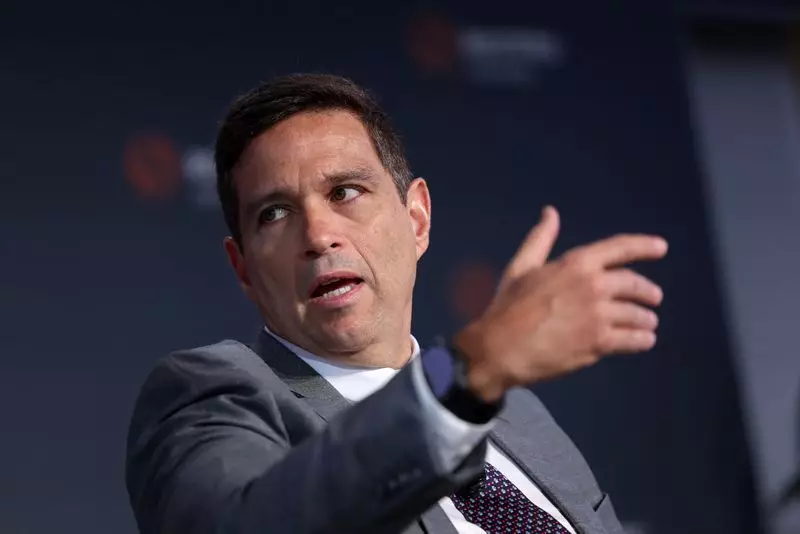In a recent discourse at an event related to the IMF and World Bank meetings, Brazil’s central bank chief Roberto Campos Neto shed light on the growing apprehensions regarding inflation tied to the upcoming U.S. elections. Campos Neto pointed to market dynamics where there is a palpable anticipation of a political shift, specifically if Republican candidate Donald Trump manages to secure victory against Democrat Kamala Harris. He articulated that this political landscape significantly influences long-term interest rate futures, as investors are increasingly factoring in the potential inflationary pressures stemming from election-related fiscal policies.
The concerns propagated by Campos Neto highlight a broader narrative in the global economic milieu: significant political events in one major economy can set off chain reactions across worldwide markets. Speculative investments and market behaviors in anticipation of policy changes, particularly concerning immigration and protectionism, introduce yet another layer of complexity in predicting inflation trajectories both in the U.S. and abroad.
Turning focus to Brazil, Campos Neto acknowledged a slight deterioration in inflation metrics, with consumer prices recorded at 4.47% over the preceding twelve months, surpassing the government’s comfort threshold of 3% along with a deviation allowance of 1.5 percentage points. Nevertheless, not all news was bleak. The announcement of reduced energy tariffs slated for November infused some optimism, prompting several economists to revise their inflation forecasts positively.
This interplay between energy costs and inflation is significant, as energy prices directly and indirectly affect consumer spending and overall economic health. Campos Neto’s insights suggest a nuanced understanding of inflation dynamics where government actions can mediate escalating price levels amidst an inherently volatile market environment.
Despite these encouraging developments, Campos Neto emphasized an urgent need for robust and structural fiscal strategies to mitigate rising risk premiums associated with Brazil’s financial landscape. He noted that while the situation may not be catastrophic compared to other nations, a significant portion of the risk premium linked to Brazil’s yield curve is tied deeply to fiscal stability. The looming municipal elections at the end of the month may present an opportunity for announcing critical fiscal reforms.
The connection between public policy decisions and investor sentiment cannot be overstated. As Brazil prepares for municipal elections, the outcome of these political events could energize the government to pursue necessary fiscal reformation, thereby enhancing confidence in the economy.
Looking ahead to the central bank’s policy meeting scheduled for early November, economists are bracing for an expected interest rate hike, with forecasts suggesting a possible increase of 50 basis points, following a more modest rise of 25 basis points previously. This aligns with Campos Neto’s reiteration that the central bank is firmly committed to meeting its inflation targets.
The intricate web connecting political developments, consumer prices, and monetary policies illustrates the multifaceted nature of today’s economic challenges. Campos Neto’s observations serve as a crucial reminder of the importance of strategic fiscal management and proactive monetary policy in ensuring economic stability in Brazil amidst volatile global economic landscapes. The interplay between domestic fiscal policies and international market conditions remains pivotal as nations navigate the challenging waters shaped by political uncertainty and inflationary pressures.

